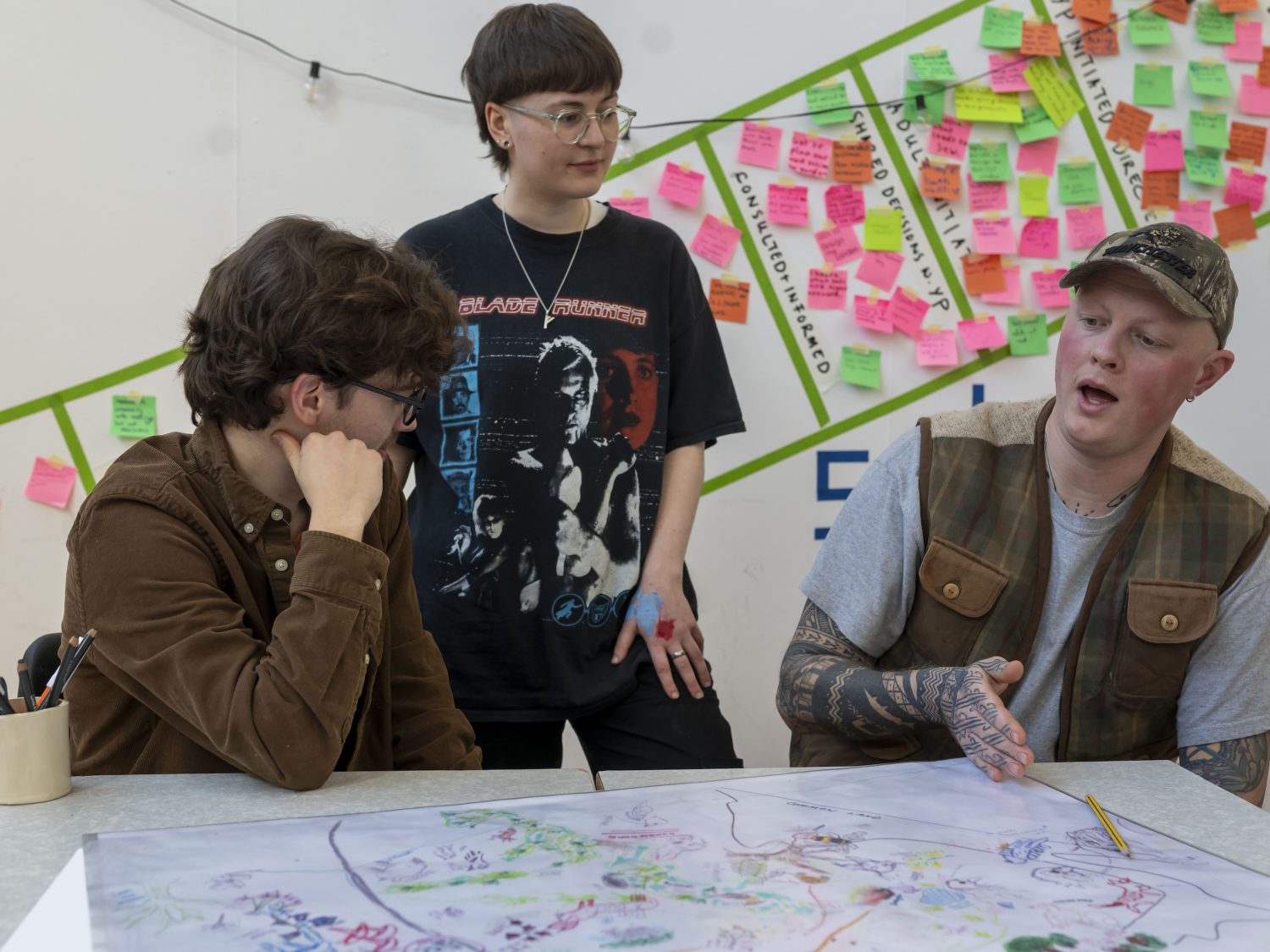Case Study
Bannau Brycheiniog harnessing futures storytelling
Creative long-term thinking exercises to envision the future
Thinking about the long-term is not just one of the five ways of working in the Well-being of Future Generations Act – it is the idea sitting at the very heart of the legislation.
But trying to look forward can be difficult when issues and priorities are deeply rooted in the present and our funding cycles prioritise short-term thinking.
The challenges:
- Health inequalities are increasing, and climate change is worsening.
- Trust in our public institutions is declining, people are divided and feel they aren’t meaningfully influencing decisions on a local or national level.
- Despite it being a good way of connecting people, our food system is broken and unsustainable.
Bannau Brycheiniog National Park Authority have been using innovative engagement techniques, ranging from community-written “postcards from the future” to an immersive time travel experience, to involve young people and inform their long-term strategy, Dyfodol y Bannau.
Through supporting them to envision different possible futures, students from years 8 and 9 of Crickhowell High School created plans and presented solutions to decision-makers.

Recognising the environmental and social impact of our food systems, the Authority worked to engage communities and young people in a way without polarisation.
Through an immersive “time machine” (a blow-up planetarium), the students were led through interactive and animated 360-degree films by a fictional character, Mrs Brychan, around the history of food systems from 1939 to 2039.
Learning about rationing, supermarket dominance, and global supply chain impacts, the students learned how change is possible within a single lifetime, inspiring them to think critically about the present and dream about the future.
Students then created and presented their own documentaries from the future, imagining solutions for a more resilient and equitable food system to decision-makers.
The children also took part in an exercise where they looked at a model representing Bannau Brycheinog to talk about its past, present, and future issues, creating their own flags with pledges to create a better future.
The project faced logistical challenges, including high costs and accessibility limitations of the planetarium and is now exploring VR technology to make the experience more accessible, making it easier for other organisations in Wales to follow in their footsteps.
Positively, there are plans in place for Bannau Brycheiniog to work in collaboration with Powys County Council to influence local food strategies, demonstrating the potential of creative futures storytelling in policy-making so that future generations can work with policy-makers to build the world together.
Natalie Armotto-Oliver, teacher at Crickhowell High School